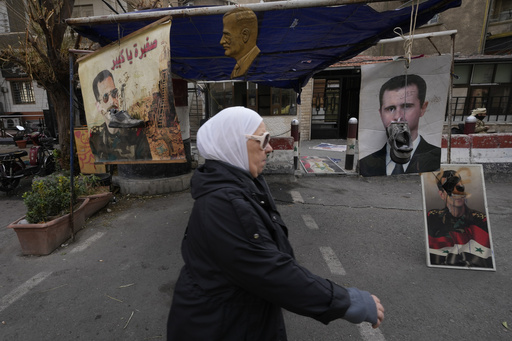
UNITED NATIONS — The United Nations body tasked with investigating severe crimes in Syria announced on Monday that the newly formed authorities in the country displayed a “very receptive” attitude toward its appeal for collaboration during a recent visit to Damascus. This visit marks the beginning of the organization’s deployment efforts in the region.
Led by Robert Petit, who is at the helm of the International, Impartial and Independent Mechanism for Syria (IIIM), this visit was notable as it was the first since the mechanism’s establishment by the U.N. General Assembly in 2016. Its primary objective is to assist in the collection of evidence and to aid in the prosecution of individuals believed to be responsible for potential war crimes, crimes against humanity, and acts of genocide occurring since the onset of the Syrian civil war in 2011.
Petit stressed the critical need to protect documents and various pieces of evidence before they deteriorate or disappear. Following the overthrow of President Bashar Assad by rebel forces and the subsequent opening of detention facilities, there has been an increasing demand among Syrians for the prosecution of those accountable for grave acts and killings committed during his administration.
“The decline of Assad’s regime presents a crucial opportunity for us to adhere to our mandate on the ground,” Petit remarked. “Time is of the essence. We have a limited window to secure these locations and the materials they contain.”
U.N. associate spokesperson Stephane Tremblay indicated that the investigative team is “preparing for an operational deployment at the earliest opportunity and as soon as we receive authorization to proceed with activities in Syria.”
Another spokesperson from the IIIM, who accompanied Petit during the visit, elaborated: “We are gearing up for deployment with the expectation that we will receive the needed authorization.” They noted that representatives from the interim authorities demonstrated a willingness to collaborate and recognized the extensive scope of the task that lies ahead. They pointed out the need for expertise to help safeguard the documents that are becoming more accessible.
While the IIIM did not divulge specific names of officials from the new government that were met during the visit, nor did it reveal the locations Petit toured afterward, he mentioned that even the documentation at a single facility showcases the regime’s systematic approach to committing atrocity crimes.
Petit emphasized that a collective effort involving Syrians, civil society groups, and international allies would be vital to ensure the preservation of evidence, prevent duplication of efforts, and guarantee that the voices of all victims are included in the pursuit of justice.
Furthermore, in June 2023, the General Assembly of 193 member states established an Independent Institution of Missing Persons in the Syrian Arab Republic to investigate the fate and location of over 130,000 individuals unaccounted for as a direct result of the ongoing conflict.

